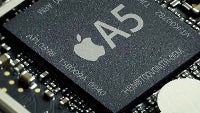Apple breaking up with Samsung as components supplier, embracing the TSMC foundries

Numerous industry sources point to Apple trying to get away from what is turning out to be its biggest competitor instead of a mere components supplier, Samsung.
The move seems to be already underway, with the Taiwanese TSMC foundries picking up the slack, and likely to receive the orders for the A6 chipset next year, when Apple is expected to break up with Samsung completely.
The Koreans were still making the A5 chipset in the iPad 2, the flash memory bits, as well as other components for Apple, before the legal battle between the two companies began, but Cupertino is looking for alternative shops on all of these, and we bet it can't wait for the contracts to end.
TSMC is a contract fab, which can produce with the 28nm process, paving the road for the faster and more power-efficient A6 chipset next year, while the A5 is still made with the 40nm technology. There is always Intel, of course, which has expressed interest in having Apple's business with its 22nm newfangled 3D transistor process, but it still has to prove its viability before Apple's ARM-based chipset designs.
via ArsTechnica
The move seems to be already underway, with the Taiwanese TSMC foundries picking up the slack, and likely to receive the orders for the A6 chipset next year, when Apple is expected to break up with Samsung completely.
TSMC is a contract fab, which can produce with the 28nm process, paving the road for the faster and more power-efficient A6 chipset next year, while the A5 is still made with the 40nm technology. There is always Intel, of course, which has expressed interest in having Apple's business with its 22nm newfangled 3D transistor process, but it still has to prove its viability before Apple's ARM-based chipset designs.
Apple is a huge customer, so its split with Samsung won't go unnoticed, but manufacturing chipsets is quite a low margin business, so it's unlikely that Samsung will be severely wounded, plus such a move should have been expected in light of the legal skirmish between these two. This also means that the probability to see a Super AMOLED type display in the next iPhones is quickly approaching zilch.
via ArsTechnica










Things that are NOT allowed: